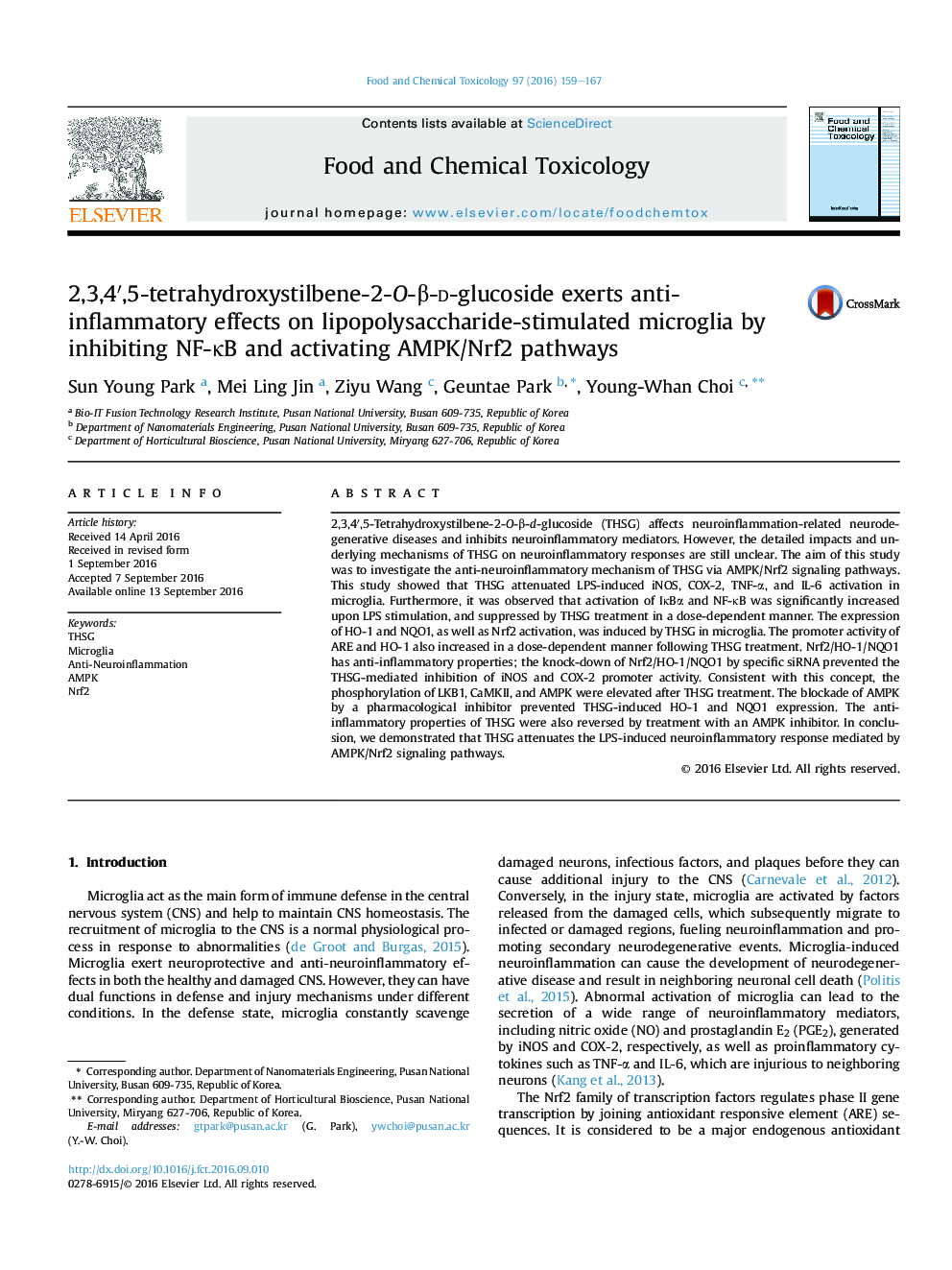| Article ID | Journal | Published Year | Pages | File Type |
|---|---|---|---|---|
| 8549232 | Food and Chemical Toxicology | 2016 | 9 Pages |
Abstract
2,3,4â²,5-Tetrahydroxystilbene-2-O-β-d-glucoside (THSG) affects neuroinflammation-related neurodegenerative diseases and inhibits neuroinflammatory mediators. However, the detailed impacts and underlying mechanisms of THSG on neuroinflammatory responses are still unclear. The aim of this study was to investigate the anti-neuroinflammatory mechanism of THSG via AMPK/Nrf2 signaling pathways. This study showed that THSG attenuated LPS-induced iNOS, COX-2, TNF-α, and IL-6 activation in microglia. Furthermore, it was observed that activation of IκBα and NF-κB was significantly increased upon LPS stimulation, and suppressed by THSG treatment in a dose-dependent manner. The expression of HO-1 and NQO1, as well as Nrf2 activation, was induced by THSG in microglia. The promoter activity of ARE and HO-1 also increased in a dose-dependent manner following THSG treatment. Nrf2/HO-1/NQO1 has anti-inflammatory properties; the knock-down of Nrf2/HO-1/NQO1 by specific siRNA prevented the THSG-mediated inhibition of iNOS and COX-2 promoter activity. Consistent with this concept, the phosphorylation of LKB1, CaMKII, and AMPK were elevated after THSG treatment. The blockade of AMPK by a pharmacological inhibitor prevented THSG-induced HO-1 and NQO1 expression. The anti-inflammatory properties of THSG were also reversed by treatment with an AMPK inhibitor. In conclusion, we demonstrated that THSG attenuates the LPS-induced neuroinflammatory response mediated by AMPK/Nrf2 signaling pathways.
Related Topics
Life Sciences
Agricultural and Biological Sciences
Food Science
Authors
Sun Young Park, Mei Ling Jin, Ziyu Wang, Geuntae Park, Young-Whan Choi,
